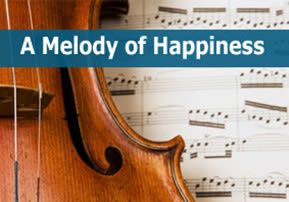
A Melody of Happiness
Impervious to everything going on around him, Rebbe Natan was singing in such magnificent sweetness that the Ukrainian peasants began running after the wagon to hear…

Translated by Rabbi Lazer Brody
In Forest Fields, Part 40
Even if a voice from Heaven or a prophet comes along and tells you that you’re finished, there’s no hope, Hashem doesn’t want you or your teshuva, or whatever you do is worthless, don’t believe any of it! In such a case, one must tell oneself, “Hashem loves me! Everything is for the best! Rebbe Nachman promised that there’s never room for despair!” That’s the way of emuna.
Let’s say – for the sake of argument – that we’ve done something so terrible that despite our teshuva, we’ve lost our portion in the world to come, Heaven forbid. Even this is for the best! Rebbe Nachman emphasizes (Likutei Moharan II:37) that true service of Hashem is when a person has no expectation of any reward, physical or spiritual, in this world or in the world to come. So, when we do sincere teshuva and serve Hashem after we’ve been told that we won’t be remunerated in any way, we’ve attained a very lofty spiritual level of serving Hashem completely altruistically with no ulterior motives. Few people reach this exalted level that actually invokes every imaginable blessing in this world and in the next.
The Gemara tells the story of a scholar with brilliant potential, Elisha ben Abuya (see tractate Chagiga, 16a). He suffered several spiritual setbacks until a voice from Heaven declared that all mischievous sons are invited to come back to Hashem except him. He became so discouraged that he completely left the world of Torah and holiness. If Elisha ben Abuya would have had Rebbe Nachman’s advice telling him that there’s no despair in the world, he could have made a heroic spiritual comeback.
It’s ever so important for our generation to know that with emuna, there’s never any despair and there’s always hope. When we reinforce ourselves with the resolve to do teshuva no matter what, we not only get back on our feet but we become much stronger than we were before the misdeed. A person must remember three critical words that are an effective spiritual lifesaver under any circumstances – “Hashem loves me!”
The ultimate purpose
One of life’s mysteries is that many G-d-fearing people somehow fail to sing songs of praise to Hashem and to thank Him. Rebbe Nachman writes (Likutei Moharan II:2) that a person’s Torah learning should bring him to gratitude, for expressing one’s gratitude to Hashem is the sublime pleasure of the world to come. The Midrash says (Vayikra Raba 9:7) that in the future, all the ritual sacrifices will be cancelled except for the thanks-offering.
The Torah lists 98 terrible curses that are liable to befall on the Jewish people, G-d forbid. We ask ourselves why; what could a person do that’s so terrible to warrant such calamity that the Torah describes in Chapter 28 of Deuteronomy? Bloodshed? Idolatry? Illicit sex? None of the three; the Torah says (Deuteronomy 28:47), “For you didn’t serve Hashem with joy and with a willing heart,” which is chastisement for not thanking Hashem.
A Jew in Hebrew is Yehudi, which comes from the Hebrew root word for giving thanks, lehodot. A Jew is one who gives thanks, for without giving thanks, there can be no emuna.
Throughout our book “The Garden of Emuna,” we mentioned that ingratitude invokes stern judgments. A person can be judged leniently on his setbacks to lust, temptation, and sin, for one doesn’t always win the battle with his evil inclination. But, there’s no excuse for ingratitude. A person’s constant complaints awaken the wrath of the Heavenly Court, while gratitude mitigates the sternest of judgments.
Melody of Happiness
Our sages of blessed memory had one goal when they codified our daily blessings and liturgy – to heighten our sense of appreciation for our many blessings in life and therefore to educate us to say “thank You” to Hashem.
We should therefore pray with joy, say our blessings with intent, and to recite our prayers with joy and song. We can even recite our silent Shemona Esrei with a silent melody in our heart, which on a spiritual level adorns the Divine Presence and mitigates all severe judgments.
 Niggun, a melody, is powerful in arousing a person’s heart. Breslever tradition relates a beautiful story about Rebbe Natan, who would travel from place to place in a covered wagon. Once, he was accompanied by one of his students who noticed that Rebbe Natan began his prayers with a heaviness of heart. Gradually, Rebbe Natan become humming a melody which he later applied to his prayers. His praying became progressively more joyous until his face was on fire with enthusiasm. He was so absorbed in his prayer that he was impervious to everything going on around him. He was singing in such magnificent sweetness that the Ukrainian peasants began running after the wagon to hear.
Niggun, a melody, is powerful in arousing a person’s heart. Breslever tradition relates a beautiful story about Rebbe Natan, who would travel from place to place in a covered wagon. Once, he was accompanied by one of his students who noticed that Rebbe Natan began his prayers with a heaviness of heart. Gradually, Rebbe Natan become humming a melody which he later applied to his prayers. His praying became progressively more joyous until his face was on fire with enthusiasm. He was so absorbed in his prayer that he was impervious to everything going on around him. He was singing in such magnificent sweetness that the Ukrainian peasants began running after the wagon to hear. By the time Rebbe Natan reached the Shemona Esrei prayer, he was so deep in prayer that he didn’t feel the bitter cold of the Ukrainian winter or the fact that the wagon had now come to a halt in front of an inn. His student had to help him off the wagon and take him inside the inn so that he could pray his Shmona Esrei prayer indoors.
When Rebbe Natan completed his prayers, his student asked him how he was able to uplift himself from the heaviness that characterized the beginning of his prayers and to ultimately pray in such joy and holy fervor. Rebbe Natan answered, “I remembered what Rebbe Nachman taught me: A person has to revitalize himself with a melody of happiness and especially during prayer, for such a melody pulls the heart to Hashem (see Rebbe Nachman’s Discourses, 273). So I implemented his advice and was therefore able to bring my heart to Hashem.”
To be continued.








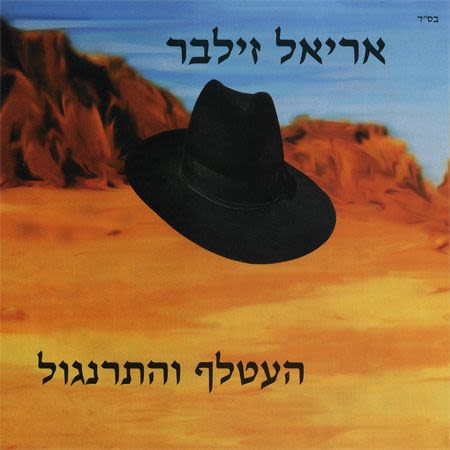


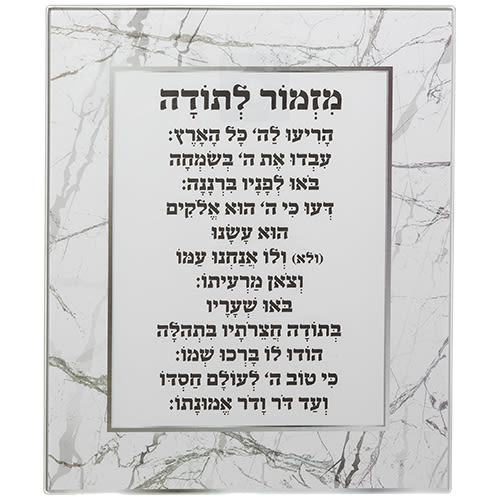
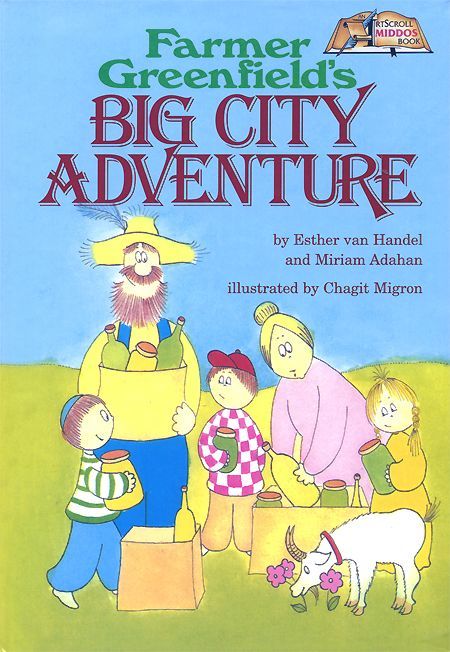
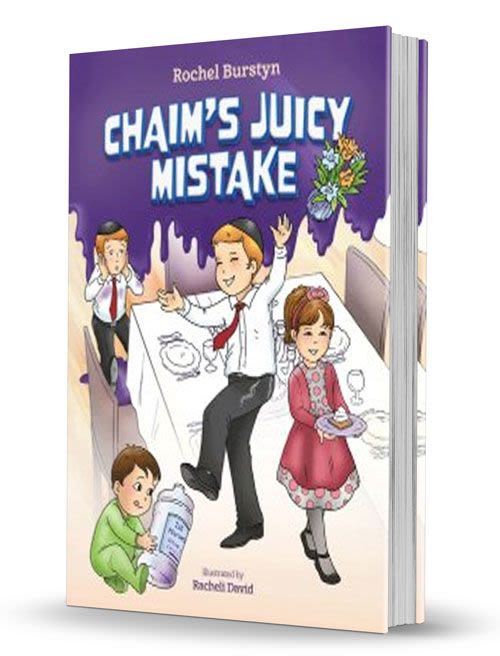
Tell us what you think!
Thank you for your comment!
It will be published after approval by the Editor.